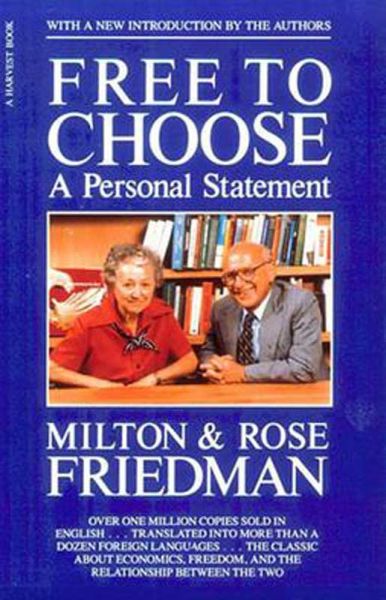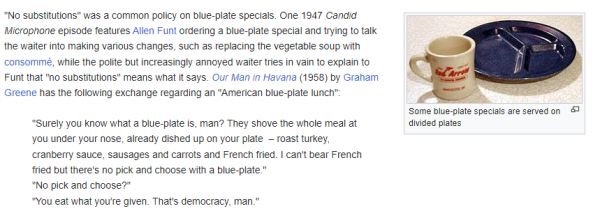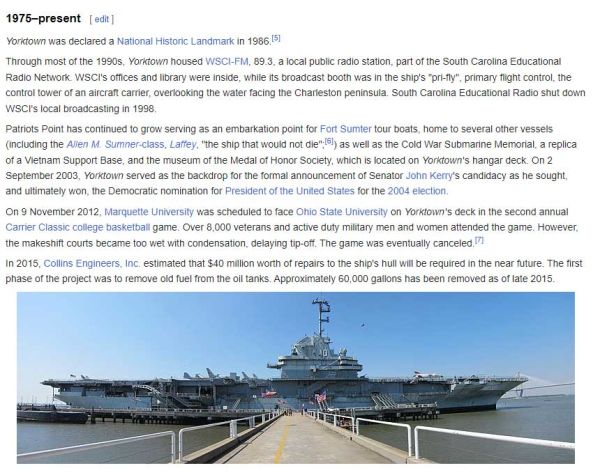Freedom to Choose
FREEDOM TO CHOOSE
The phrase, "Freedom to Choose," defines more than anything the Republican ethos of governing a country. We like for a free-market to offer us stuff. We like to go into a grocery store, hardware store, computer store, and see rows and shelves loaded with merchandise—and we pay for it with money. The free-market exists in a state of constant, accelerated evolution. It has to evolve in order to keep up with, or outpace, the competition. Make it faster, better, and cheaper.
Private schools, colleges, and graduate schools likewise strive for exellence. They are uninterested in things like equality, tolerance and diversity, and social acceptance, because their customers—the parents and students—want institutions that will enable them to stretch their wings and advance in society. They strive for achievement and game-changer careers. If the institutions of learning do not pursue these goals, they will lose out to more competitive schools that do pursue them. They will also lose out with students who will see a luke-warm commitment to scholarship as a hindrance to their futures.
Because the government should enhance the strength of the free-market, it can assist the market in several ways. The government should oversee the market, but they should work in partnership, not as opponents. The effort to support the market defines a freedom-loving government. For instance, the government should make financing available to poorer families, so that their children can attend private schools and enjoy the privileges of wealthier children. It is pointless to talk about private schools as better than public schools. As I have said, competition in a free-market defines the best of anything. Just give people the choice, and let them decide.
The issue of partnering-up takes on special significance when talking about health-care issues in a free-market, but the basic principle remains the same. Hospitals want good doctors, and they will pay to get the best. Patients want good doctors for themselves and their families, and they typically go on-line now, for reviews or grades of a doctor's performance.
Health-care agencies want patients, so they have an incentive to maintain a competitive edge and efficiency in their operations. They strive to outdo what other agencies offer. That holds true for the doctor's office, the hospital, the insurance agency, the out-patient agency, and everything else.
Republicans don't want the government offering services, because it has little incentive to remain competitive—because it has no competition. Government agencies staffed with bureaucrats do not think creatively or innovatively. They think uniformly. The top government-agency hands down its directives to the lower ranks, assuring uniformity. The public has no direct input in the management of government agencies. The agencies offers a blue-plate special: you take what you're given.
For a good example of the government-agency ethos, consider the history of National Public Radio. I have listened to NPR for years and remember when it offered broadcasts from two transmitters in South Carolina, from the aircraft carrier U.S.S. Yorktown in Charleston Harbor and from Clemson University in the Upstate. I woke up each morning hearing the DJ aboard the Yorktown describe the sun rising over Charleston Harbor. Each network had plenty of program options. Now, NPR runs all its programs out of the headquarters in Washington. The resulting uniformity and lack of invention defines the government blue-plate special, and that has hurt the appeal of NPR.
By the same token, NPR's continuing appeal among Americans signals that the Republican ethos of market-solutions, featuring lots of inventory, enormous variety of consumer-products, and endless choices, does not appeal to everyone. Rather than confront the intimidating variety, they opt for the blue-plate to take the anxiety out of decision-making. For a lot of people, rejecting market solutions in favor of government services signals their loss of confidence in a freedom-loving society.
The Left prefers government services to the marketplace—but can't "choose" to let the government manage their lives, because the stigma of second-class citizenship makes them look bad—to admit they cannot run their own lives, that they must let the government make decisions for them; so they would just as soon dictate compliance to government services for everyone. That puts everyone in the same boat, so to speak—makes us all equal.
Republicans have to realize that we are finally facing what every other industrialized nation has had to face, the split in the intentions of the governed, and the lack of common ground in their opinions with regard to a form of government. It is pointless to talk about unity in this situation. We do so at our own peril. We need to retain, instead, the ethos of the marketplace and the freedom to choose. We can only do that by leaving and creating our own country.



